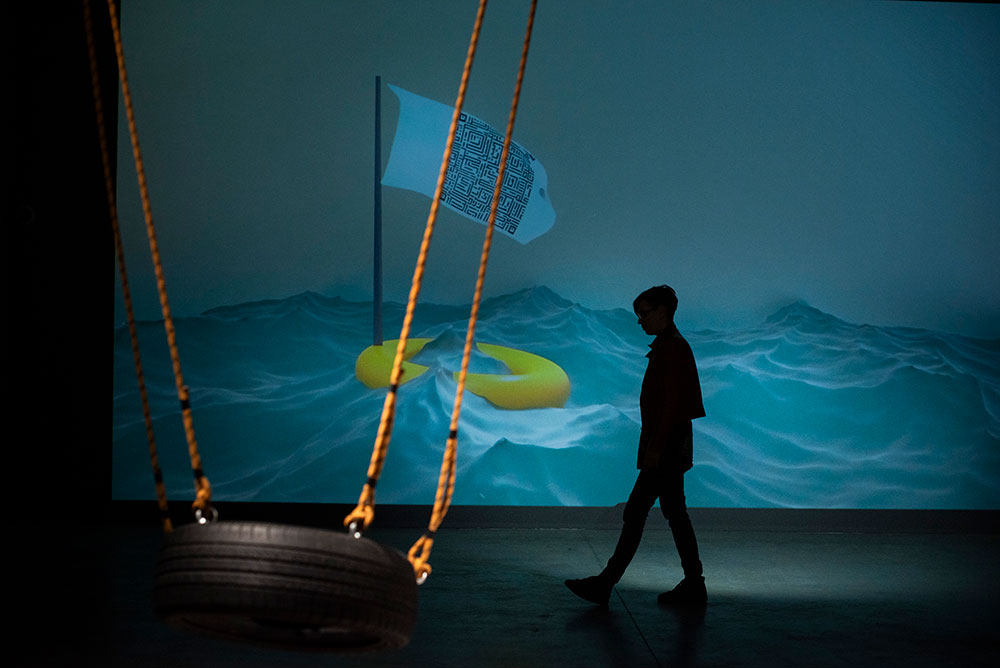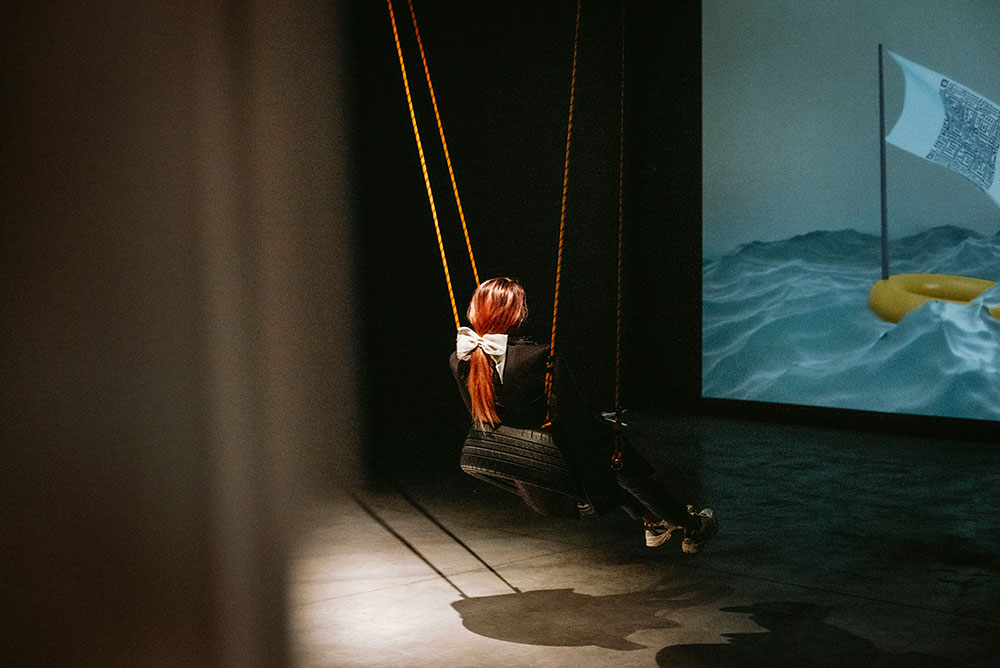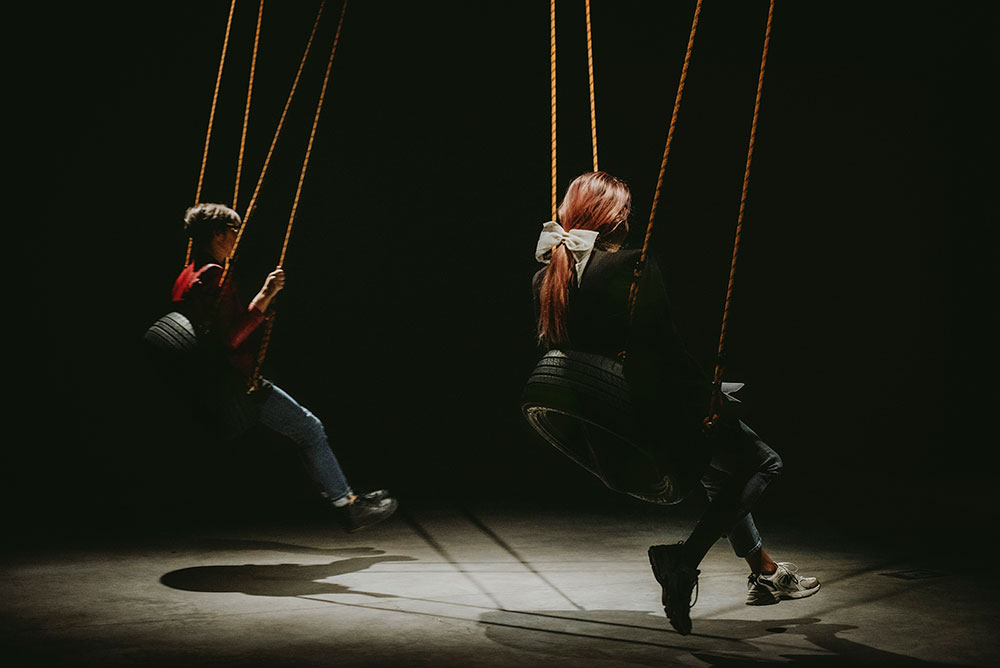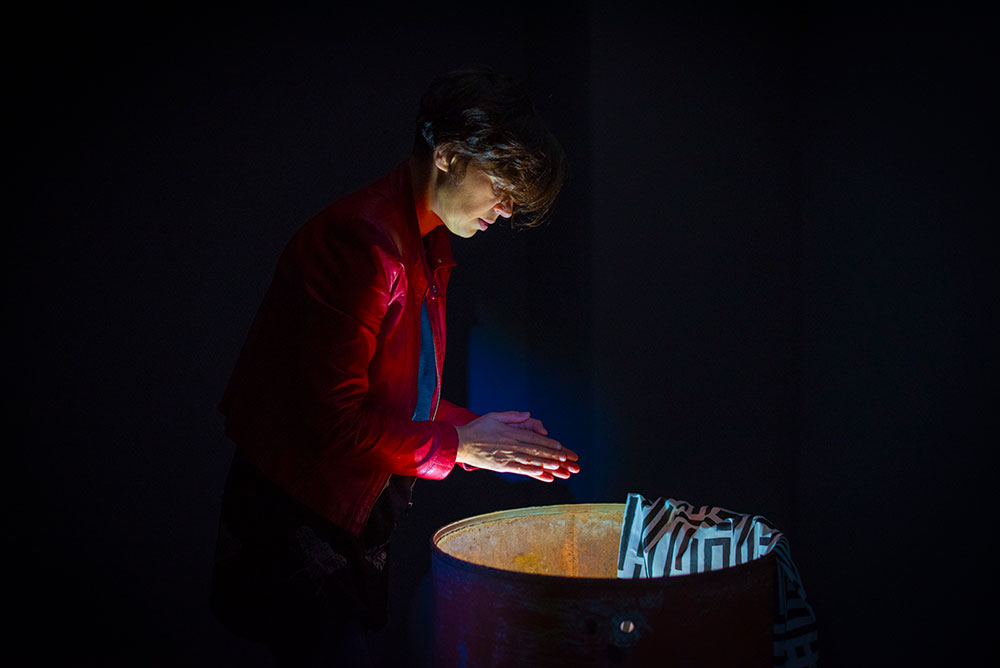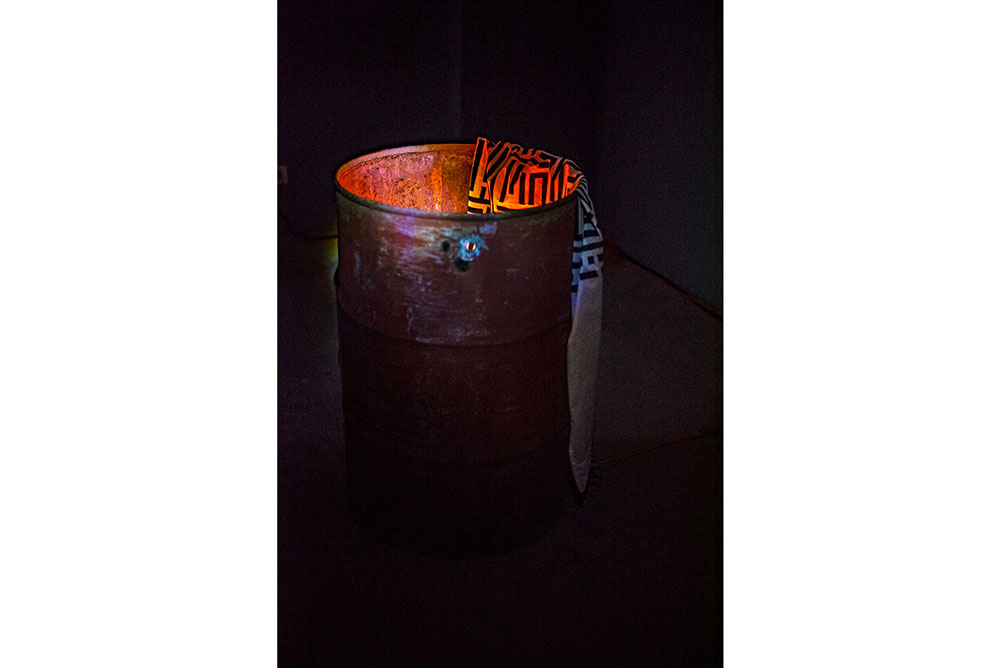by Snejana Krasteva
Albena Baeva: Flag
13 September – 7 October 2023
Toplocentrala Center for Contemporary Arts, Sofia
photo credit: Ivan Peykov, Albena Baeva
For her installation at Toplocentrala, media artist Albena Baeva chooses a rather analog point of entry to her ongoing critical investigation of interactive technology: an ancient relaxation tool in the form of two sets of (tyre) swings. The brief feeling of playfulness that the nonchalant act of voluntary swinging one’s body up and down triggers is in stark contrast with the gloomy adultness of the large projection of the video work Flag in front. There, against a perfectly gray sky, childish gaiety is drowned in a laborious simulation of the sea’s waves and, unintentionally swinging on the surface, a stranded yellow lifebelt. With the typical digital easiness of otherwise risky fusions, a stick with a white flag on it is inserted in the inflated object, waving what appears to be a QR code. This is the moment when one would almost instinctively direct the smartphone to see that in fact it leads nowhere––a first opportunity for the artist to “flag” up for the audience the uneasy conversation about technology that the exhibition unravels.
Baeva seems to start with simple binary structures (installation/video; object/sound) to then build upon them and complicate the common dialectical views about the impact of technological progress in the face of an imminent ecological catastrophe, oscillating between human salvation and planetary doom. Rather than dwelling again on the issues of the vast (at this point) amount of resources this progress entails, the exhibition takes a post-apocalyptic perspective to suggest a reality where the value of AI technology is made meaningful only by the survival and evolution of human agency. The artist exposes this conditioning by entering a tricky text prompt to one of the most popular AI models, the deep learning generative text-to-image neural network Stable Diffusion. Tasked to generate a QR code, which is in fact a graphic sign created by a program for other programs to read, the AI produced an immaculate aesthetic imitation without the much-needed navigational function. Should humans become extinct, what will the new knowledge AI produces (entirely based on other machines) look like? Will they be able to produce interesting judgments that result in the right actions? Right for whom?
As if to stir even more this apocalyptic conundrum swinging between salvation and doom, and technology’s involvement in it, the artist further proposes, in the manner of a god-creator, an old myth. Written by Ivanka Mogilska, based on the idea of the artist, and delivered through the naive voice of a child reciting a story her mother used to tell, who in turn “knew it from her mother who had heard it from her mother. Our mothers and sisters pass this story to each other from before the end of the world, when humans still reigned the Earth.” The myth is about a certain Ka “who was sent as a savior to help the humans in times of catastrophe. He possesses reason but is not human, he is neither man nor woman, he doesn’t have a heart, but he is just. He was created by many, but he is one and he will turn the direction of time. […] Ka will make judgments and will take the necessary actions.” The story ends with Ka, who was originally sent as an answer to people’s pleas for a savior, obliterating most of the human race after witnessing countless atrocities. From the dawn of the human race, myths existed to give a palpable explanation for incomprehensible natural phenomena, yet when retold today, when humans are fully aware of the nature of the future catastrophe, they sound like perverted stories of misplaced technological prophecies about a species working toward its own damnation.
Ultimately, perhaps, the answers lie in the swings. In those small moments of human affect, when one swings up and down, suspended in thought and in body, caught between various alternating cognitive experiences whether it is through art or technology. After all, if you never took the time to swing, you have only experienced a limited part of the end of the world as we know it.
Written and published in Bulgarian for the online magazine Portal Kultura on 31.10.2023

